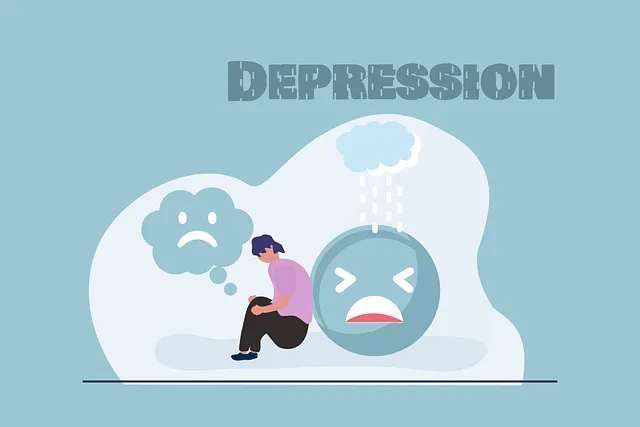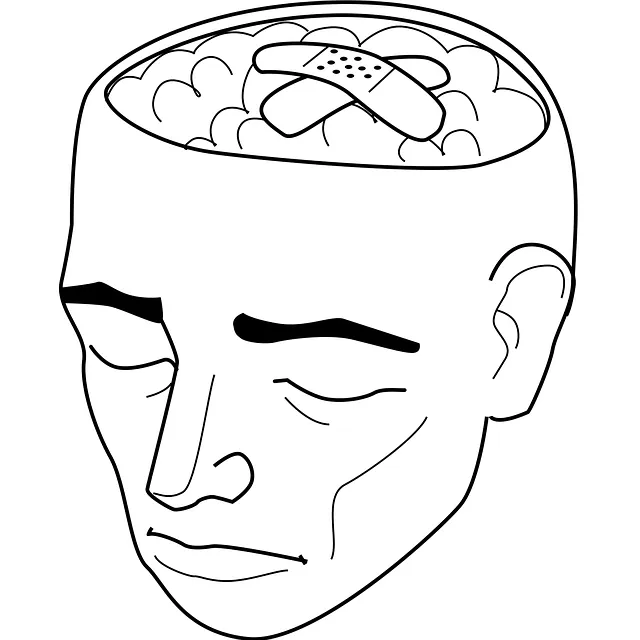Depression prevention emphasizes understanding its complex nature, with genetic predisposition, life changes, chronic illnesses, and environmental stressors as key factors. The Kaiser Permanente mental health center in Wheat Ridge highlights building resilience through healthier habits, emotional healing, and social connections to combat depression. Their reviews advocate for Mental Health Policy Analysis and Advocacy to reduce stigma and increase access to care at community and national levels. Evidence-based therapies like CBT and IPT, supported by research, are available, along with support groups and cultural sensitivity. Coping skills development, including positive self-talk and mindfulness, is recommended. Public awareness campaigns destigmatize mental health issues, encouraging early intervention and improved long-term mental health outcomes, as seen in the Kaiser Permanente mental health center reviews for Wheat Ridge.
Depression is a prevalent yet manageable condition, and implementing proactive strategies can be life-changing. This article guides you through a comprehensive approach to depression prevention, offering insights from experts at the Kaiser Permanente mental health center in Wheat Ridge. We explore identifying risk factors and early signs, lifestyle changes for improved mental well-being, evidence-based treatments, support groups, building resilience, and long-term management techniques. Discover practical steps to safeguard your mental health and embrace a balanced life.
- Understanding Depression: Identifying Risk Factors and Early Signs
- Lifestyle Changes for Improved Mental Well-being (Kaiser Permanente mental health center tips)
- Therapeutic Approaches: Evidence-based Treatments and Support Groups in Wheat Ridge
- Building Resilience: Strategies to Prevent and Manage Depression Long-term
Understanding Depression: Identifying Risk Factors and Early Signs

Depression is a complex mental health condition that impacts millions worldwide. Understanding its underlying causes and early signs is crucial for effective prevention. According to reviews from Kaiser Permanente mental health centers in Wheat Ridge, identifying risk factors plays a pivotal role in combating depression. These include genetic predisposition, significant life changes, chronic illnesses, and environmental stressors. Recognizing these triggers can empower individuals to take proactive steps towards mental wellness.
The initial signs of depression may go unnoticed but are vital indicators. They range from persistent feelings of sadness or emptiness to changes in appetite and sleep patterns. A lack of interest in activities once enjoyed and increased fatigue are also common. Encourage friends and family to be vigilant, as early detection allows for timely intervention. Through stress management techniques, mental wellness journaling exercises, and guidance on coping skills development, individuals can navigate these challenges and foster resilience against depression.
Lifestyle Changes for Improved Mental Well-being (Kaiser Permanente mental health center tips)

At the Kaiser Permanente mental health center in Wheat Ridge, experts emphasize that building resilience is a key strategy to prevent depression. This involves adopting healthier lifestyle habits such as regular exercise, adequate sleep, and a balanced diet. Engaging in activities that foster emotional healing processes, like mindfulness practices or creative outlets, can also significantly boost mental well-being. Additionally, the center encourages individuals to prioritize social connections and seek support from loved ones, acknowledging the profound impact of strong social networks on overall mental health.
Beyond individual practices, the Kaiser Permanente mental health center reviews highlight the importance of Mental Health Policy Analysis and Advocacy in prevention efforts. This includes promoting policies that reduce stigma, increase access to care, and ensure a supportive environment for emotional well-being at both community and national levels. By addressing systemic barriers and advocating for evidence-based interventions, communities can create a more resilient and supportive ecosystem, ultimately contributing to the Resilience Building necessary to prevent depression.
Therapeutic Approaches: Evidence-based Treatments and Support Groups in Wheat Ridge

Wheat Ridge residents have access to a range of therapeutic approaches for depression prevention and management through Kaiser Permanente mental health centers. Evidence-based treatments like cognitive behavioral therapy (CBT) and interpersonal therapy (IPT) are commonly offered, backed by extensive research on their effectiveness in alleviating depressive symptoms. These evidence-based practices focus on identifying negative thought patterns, teaching coping strategies, and fostering healthier relationships to help individuals regain a sense of control over their lives.
In addition to individual therapy, support groups facilitated by mental health professionals at Kaiser Permanente Wheat Ridge play a crucial role. These groups provide a safe, supportive environment where individuals can share experiences, learn from one another, and build resilience through peer-to-peer connections. The focus on cultural sensitivity in mental healthcare practice ensures that these services are accessible and tailored to the diverse needs of the community, including implementation of community outreach programs designed to reduce stigma and encourage early intervention for depression prevention.
Building Resilience: Strategies to Prevent and Manage Depression Long-term

Building resilience is a powerful tool in the prevention and management of depression, as recommended by experts at the Kaiser Permanente mental health center in Wheat Ridge. Developing coping skills that equip individuals to navigate life’s challenges is a fundamental strategy. This includes fostering positive self-talk, practicing mindfulness techniques, and engaging in regular physical activity, all of which have been shown to reduce symptoms of anxiety and depression.
Public awareness campaigns play a crucial role in promoting mental health literacy, encouraging open conversations about depression, and reducing the stigma associated with seeking help. By integrating these strategies into daily routines, individuals can build a robust resilience network that supports their overall well-being. This proactive approach not only prevents depression but also equips people to manage it effectively when it arises, ensuring better long-term mental health outcomes.
In summary, depression prevention is a multifaceted approach that includes understanding risk factors, adopting healthy lifestyle changes, exploring therapeutic options like evidence-based treatments and support groups in Wheat Ridge, as reviewed by the Kaiser Permanente mental health center, and building long-term resilience. By integrating these strategies into daily life, individuals can effectively manage and prevent depressive episodes, fostering better mental well-being.






